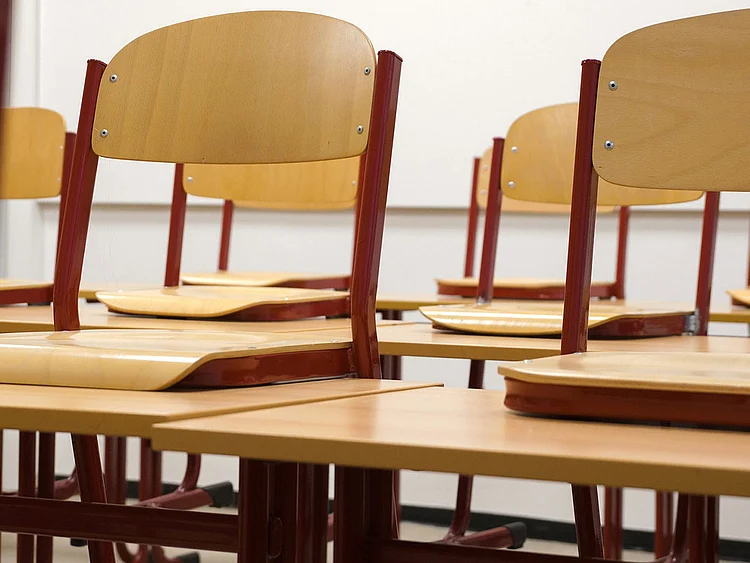Dubai: UAE private schools and parents have backed the government’s move to close schools for four weeks, which started on March 8, as a precaution against the Covid-19 virus.
Principals said the safety and health of students is “paramount”, adding schools will continue to cooperate with all government directives regarding the virus.
Schools will hold “distance learning” through online resources for the last two weeks of the month-long closure. The first two weeks have been designated as spring break, which was preponed this year in light of the developments.
Praiseworthy precautions
The precautions taken by the UAE have been praised by World Health Organisation, said Brendon Fulton, Executive Principal, Dubai British School (DBS).
“The DBS group is hugely supportive of the government’s efforts to curb the spread of the coronavirus… Whilst our preference is always to have children in school, our schools actively engage in distance learning initiatives on an ongoing basis and so we are ready to ensure that all children in the Dubai British School group, and across Taaleem [the school group of which DBS is a part], continue to receive exceptional provision through a variety of platforms, resources and age-appropriate activities,” he added.
Striking a balance
Speaking about distance learning, Fulton added: “We are very well placed to ensure that technology will be well used to support learning, but that children will also enjoy a balance between screen-time and physical activities, with enhanced opportunities to collaborate online.”
Timely move
Mick Gernon, Chief Education Innovation Officer at GEMS Education, said the decision to suspend on-campus class was “timely.
“The announcement is clearly a precautionary measure and one which, ultimately, is aimed at ensuring that the health and safety of all our students remains paramount. The spring break is a natural break in the academic year and so it is a timely announcement and opportunity to ensure that schools and universities can respond more effectively to the directives from government,” Gernon added.
Community interest
Deepika Thapar Singh, CEO-Principal at Credence High School, Al Khail, said “nothing is more important than good health”, adding that “we all know that every decision taken is with much thought and in the interest of the community at large and with the same spirit we offer our full support”.
Credence in already using technology in classrooms for teaching and learning, and also for sharing notes, assignments and communications.
“We are in the process of strengthening the ‘remote learning platform’ and we are confident that the teaching and learning will continue without any hitch. This is an opportunity for educational institutions and its stakeholders to prepare for such situations and handle the same with ease,” Singh said.
How will families adjust?
For parents, the decision has been overwhelmingly welcomed; however they, especially working couples, are also grappling with the abrupt change to daily routines.
Parents are now scrambling to put together childcare resources and activities to occupy young children for four weeks, starting from March 8 onwards, even as they wonder how to implement distance learning assignments.
“There is no doubt that the break from school is what is best for the children in the face of the novel coronavirus risk. But for households with two working members, it presents other challenges altogether,” Haneen Aweidah, 34, a public relations specialist from Jordan.
Before classes resume on April 5, school premises will be thoroughly sterilised. The closure also applies to nurseries, which have been shut since March 1.
Spring break was earlier scheduled in the UAE between March 29 and April 11, with classes to resume on April 12.
Aweidah works a full-time job in Abu Dhabi, commuting from Dubai every day. While her four-year-old son is enrolled in KG1, her two-year-old daughter stays at home with a nanny.
Flexi hours?
“With my son also at home, my nanny may very well be overwhelmed. At school, he remains engaged with activities, and we cannot organise similar ones at home. As a measure to help working parents, flexible working hours would be a boon, and would make this period easier,” Aweidah said.
Parents are already avoiding taking children to closed public spaces, saying it is not clear if surfaces are properly sterilised. One mother said she tries to take her three-year-old son to open outdoor spaces for play since he is home from nursery.
‘No-go areas’
“Indoor play areas are a no-go, so I will try to organise education activities at home. I will also try to spend more time with the family,” Aweidah said.
Vibuthi Kumar, 35, an Indian-American homemaker, said it is difficult to engage young, active children when one must avoid popular public places, and when international travel is also restricted.
‘Major change’
“My daughter was signed up for swimming classes, but we won’t be sending her for these. So for parents, this break will mean a major change from their daily schedules,” she said.
Kumar hopes to arrange play dates for her daughter with her classmates as an alternative to play area visits. “This might be the safest alternative, because children can play together while we keep an eye on their health,” she added.
Stretched thin
Other parents expressed concern about childcare during the prolonged break.
One 32-year-old mother from Palestine who works in Dubai said her managers had been understanding when nurseries were shut last Saturday.
“They agreed to flexible working hours for a week, but I cannot possibly maintain them for more than a month, until April 12. I do have a nanny at home but she has never taken care of my two-year-old daughter for the whole nine hours that I am at work,” she said.
“Of course, it is the best decision to keep children home to avoid Covid-19 risks. But for working parents, there have to be childcare provisions and allowances during the break,” she added.
Sign up for the Daily Briefing
Get the latest news and updates straight to your inbox
Network Links
GN StoreDownload our app
© Al Nisr Publishing LLC 2025. All rights reserved.
